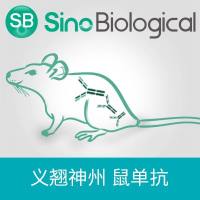Nonisotopic In Situ Hybridization for the Detection of Nuclear Retinoid Receptor Transcripts in Tissue Sections
互联网
335
Retinoids, a group of structural and functional analogs of vitamin A and clinically important agents for chemoprevention, can modulate epithelial differentiation and suppress carcinogenesis in various tissues, including skin, bladder, oral cavity, lung, and mammary gland in experimental animal-model systems by acting primarily as inhibitors of tumor promotion (1 –3 ). More importantly, they are able to reverse premalignant lesions and inhibit the development of second primary tumors in the head and neck area and the skin in xeroderma pigmentosum patients (4 –9 ). They are also useful in the therapy of several types of human cancer, primarily acute promyelocytic leukemia (9 –13 ). It is thought that the ability of retinoids to modulate gene expression enables them to modulate the differentiation and growth of malignant cells, or to suppress the progression of premalignant cells to frank neoplastic lesions by redirecting their differentiation (14 –18 ).









